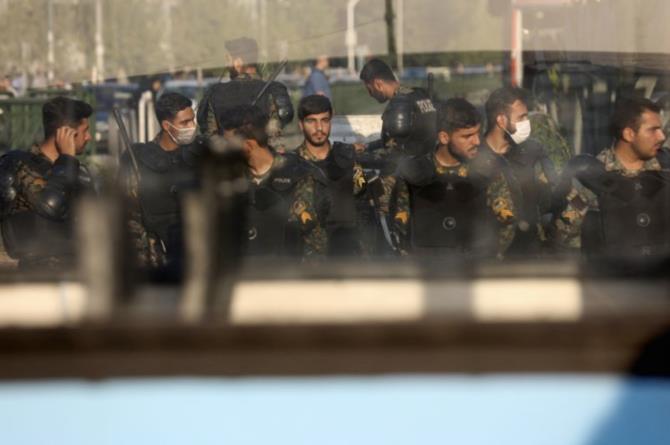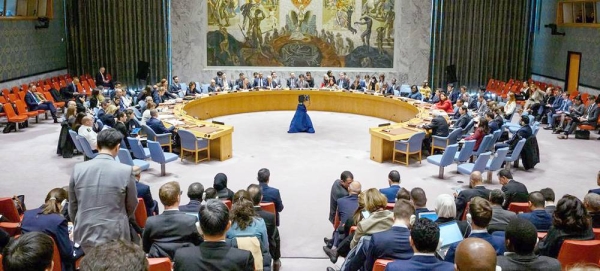
According to Iranian state media and Baloch organizations, an armed group, probably the militant Sunni Jaish Al-Adl, earlier this month launched a deadly attack on a police station in Rask, a small city in Sistan and Balochistan, that killed at least 11 police officers. Since the 2000s, this southeastern province has been the site of frequent clashes between security forces and Sunni militants, as well as drug smugglers. Until 2012, the main armed Baloch group was called Jundullah before changing its name to Jaish Al-Adl. These clashes took place against a backdrop of economic and sectarian marginalization of the region.
Some Iranian analysts believe that an explanation for the latest armed attack can be found in the rapprochement between Iran and Pakistan. According to this view, the new regional dynamic has angered the Taliban, and the implementation of a joint plan between Iran and Pakistan against the militant group forced it to react. Iranian media and officials believe Baloch armed forces are attacking Iran from Pakistan border areas, while the headquarters of the group, their command and logistics centers, are in Afghanistan. The Taliban claim that Baloch militants enter Iran from Pakistani territory in order to threaten the relationship between Tehran and Islamabad.
Officials in Iran are blaming “foreign supporters” of the militant group. The target appears to be the Taliban themselves. Iranian officials also blamed Israel for the terror attack and, more broadly, “Iran’s enemies.” The day after the Dec. 15 incident, Iranian judicial authorities ordered the execution of an unspecified man in Sistan and Baluchistan province on charges that included cooperating with Mossad to assist anti-regime militias. Jaish Al-Adl has previously carried out attacks with improvised explosive devices in Iran. Its fighters were likely responsible for a Dec. 17 attack on an IRGC Special Forces Brigade vehicle near Zahedan, the capital of Sistan and Balochistan province. Iranian media said there were no injuries or significant damage.
At the political level, Jaish Al-Adl supports equal rights and better living conditions for Baloch people. Gen. Hossein Salami, the IRGC commander, threatened those responsible for the attack in Rask on Dec. 15, including “the foreign players who gave the order.” During the funeral for the police officers, Iranian Interior Minister Ahmad Vahidi said that terror organizations active in Iran are supported by Israel. After the incident, Iranian authorities also urged Pakistan to take further action against groups that frequently breach borders to commit terrorist acts in Iran.
At the international level, Amir Saeid Iravani, Iran’s ambassador and permanent representative to the UN, in a post on X, praised the Security Council’s condemnation of the attack on the police headquarters.
The state crackdown is a key factor in the rise of recent attacks.
Dr. Mohammed Al-Sulami
These regional and international perspectives should not prevent the development of a comprehensive analysis based on the local and internal dimensions of the context in which this attack occurred. Sistan and Balochistan province is a poverty-stricken region bordering Afghanistan and Pakistan with a large Sunni population from the Baloch ethnic group who have been under pressure from Iran’s Shiite clerical rulers. Sunni Iranians are estimated to make up 15-20 percent of Iran’s 88 million population.
In July 2023, Jaish Al-Adl attacked a police station in Zahedan, claiming that the headquarters was involved in the massacre of about 90 people on Sept. 30, 2022, known as “Black Friday.” The Sunni leader in the city, Molavi Abdul Hamid, has repeatedly criticized the Shiite-led government in Iran, asking for tolerance for religious minorities, equal rights for women, and an end to repression. Speaking in his Friday sermon after the incident, Hamid said: “We must ensure that the security of the province and our safety are not compromised.”
Also, one has to take into account that the death penalty has been carried out much more frequently in Sistan and Balochistan than in other provinces since the beginning of the protest movement in Iran in September 2022. On Dec. 9, the UN special rapporteur on Iran described the levels of killing and brutality against the Baloch minority as “shocking.” It appears that Baloch citizens are disproportionately targeted and executed simply for belonging to the ethnic group.
This government crackdown is also a key factor in the rise of attacks in the province in recent months. State violence directed at Baloch protesters, who have staged demonstrations every Friday since the fall of 2022, could lead to a radicalization of local political forces. Indeed, the inability of the Iranian state to provide a minimum level of economic development because of its sectarian objective to control the religious life of Baloch citizens could transform the crisis of legitimacy of national institutions into a real crisis of authority.
Meanwhile, there is also the issue of presenting any protest in Iran as “a separatist” movement, thus pushing Baloch political forces defending religious, cultural and ethnic diversity to further extremes given the impossibility of a trustful dialogue with national authorities.
Finally, the response of Iran’s political elite is to blame “foreign states or players” for internal problems. In the eyes of most Baloch protesters and dissidents, this strategy of seeking a scapegoat to justify internal dysfunctional governance confirms the impossibility of reforming Iranian state institutions to be more tolerant of ethnic and sectarian minorities.
Dr. Mohammed Al-Sulami is the founder and president of the International Institute for Iranian Studies (Rasanah). X: @mohalsulami











